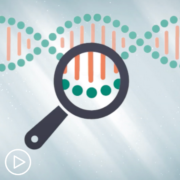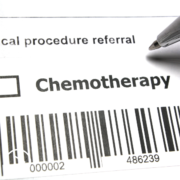The Role of Antibody Drug Conjugates in Lung Cancer Care
The Role of Antibody Drug Conjugates in Lung Cancer Care from Patient Empowerment Network on Vimeo.
What are antibody drug conjugates (ADCs)? Expert Dr. Grace Dy defines this new class of therapy and explains how ADCs work to treat lung cancer.
Dr. Grace Dy is Chief of Thoracic Oncology and Professor of Oncology in the Department of Medicine at Roswell Park Comprehensive Cancer Center in Buffalo, New York. Learn more about Dr. Grace Dy.
See More From INSIST! Lung Cancer
Related Resources:

|

|

How Can You Access Personalized Medicine for Non-Small Cell Lung Cancer? |
Transcript:
Katherine Banwell:
What is the role of antibody drug conjugates in lung cancer care?
Dr. Grace Dy:
So, the antibody drug conjugates are an exciting new class of therapy. In fact, it’s been developed for decades, but we had the first antibody drug conjugate that was just approved less than a year ago in lung cancer. And that’s the drug called trastuzumab deruxtecan (Enhertu). It seems like we’re always steps behind our breast cancer colleagues.
You know, trastuzumab deruxtecan was first developed in breast cancer patients. But hey, we also find we can have some subset of patients who will derive benefit from that. But that’s just one example. There’s plenty of antibody drug conjugates that are being developed.
So, what are antibody drug conjugates? So, as the name implies, it’s an antibody that is attached to a drug that is actually typically chemotherapy, but you can use any other drug. Generally, it’s a chemotherapy. So, you can think of it as a targeted way of delivering chemotherapy because the antibody is very specific to a certain protein. And generally, what we try to do is look for proteins that are more expressed in cancers than in normal tissues. And you try to target that and improve the therapeutic index by using a more potent chemotherapy and potentially increase efficacy that way.










